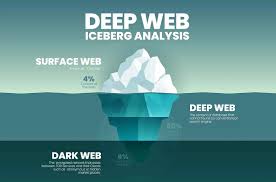Hidden Gems: Unveiling Private CC Marketplace Secrets

The dark web is an enigmatic place, a hidden layer of the internet where secrecy and anonymity thrive. Among the myriad forums and marketplaces operating within this concealed digital realm, private credit card (CC) marketplaces hold a special place. Unlike public dark web platforms, these private marketplaces vclubshop are invitation-only, tightly controlled, and often much more difficult to track. They are the “hidden gems” of cybercrime, operating quietly yet with significant influence over illicit financial transactions. In this blog, we will explore hidden gems: unveiling private CC marketplace secrets, examining how they operate, the risks involved, and why they continue to thrive.
What Are Private CC Marketplaces?
Private CC marketplaces are online platforms where stolen credit card information is bought, sold, or traded. The term “private” denotes restricted access. Unlike public marketplaces, these platforms require invitations or referrals from existing members to join. This exclusivity creates an environment where trust is paramount and reduces the risk of infiltration by law enforcement.
These marketplaces often operate on encrypted networks such as Tor or I2P, and transactions are usually conducted using cryptocurrencies like Bitcoin or Monero to ensure anonymity. Sellers offer detailed information about vclubshop login the stolen cards, including card type, issuing bank, country of origin, available balance, and other personal details. Buyers, in turn, purchase these cards to commit fraud, ranging from online shopping scams to more complex financial crimes.
The Allure of Private Marketplaces
The appeal of private CC marketplaces is multifaceted:
- Security and Trust: Public marketplaces are prone to scams, law enforcement raids, and hacker attacks. Private marketplaces, with their invitation-only model, cultivate a sense of security and reliability. Members are often vetted, and transactions may use escrow services to minimize fraud.
- High-Quality Data: The information available on private marketplaces is often more valuable than what is found on public platforms. Sellers may provide verified, fresh credit card data, ensuring a higher likelihood of successful use.
- Community and Networking: These marketplaces foster tight-knit communities of cybercriminals who share tips, trade information, and collaborate on operations. Such networking opportunities make private marketplaces more attractive to serious actors.
- Lower Detection Risk: With fewer participants and stronger security measures, private marketplaces reduce the chance of exposure compared to their public counterparts.
How Private CC Marketplaces Operate
The operation of private marketplaces is surprisingly sophisticated, resembling legitimate e-commerce platforms but with illegal goods. Key operational aspects include:
- Membership Control: Access is often restricted through invitation-only registration. Prospective members may need references or proof of credibility from current members. Some platforms even require a vetting process to verify technical skills or past involvement in cybercrime.
- Encrypted Communication: Forums, messaging, and transaction details are often encrypted, preventing external parties from intercepting communications.
- Escrow Services: To build trust between buyers and sellers, some marketplaces offer escrow systems. Funds are held in escrow until the buyer confirms the quality and usability of the purchased credit card data.
- Quality Verification: Many private marketplaces have mechanisms to verify the authenticity of stolen data, such as test transactions or user ratings. This ensures a higher standard of reliability and reinforces trust within the community.
- Dynamic Security Measures: Domains change frequently, and advanced security protocols are used to prevent hacking attempts or law enforcement intervention.
Risks of Private CC Marketplaces
Engaging with private CC marketplaces carries significant risks for all parties involved.
For Buyers:
- Legal Consequences: Purchasing stolen credit card data is illegal in virtually every country. Law enforcement agencies actively monitor these marketplaces, and being caught can result in severe penalties.
- Scams and Betrayal: Despite trust mechanisms, some sellers may provide fake or already-compromised data, leading to financial loss.
For Victims:
- Financial Loss: Individuals whose credit card data is sold experience unauthorized charges, depleted accounts, and potential long-term financial damage.
- Identity Theft: Stolen data can be used to open fraudulent accounts or loans under the victim’s name.
- Emotional Stress: Beyond monetary harm, victims face stress and frustration while attempting to recover their financial security.
For Businesses:
- Reputation Damage: Companies whose systems are compromised may lose consumer trust and face negative publicity.
- Financial Liability: Handling fraud-related chargebacks, legal claims, and security upgrades can be costly.
The Secrets of Private Marketplaces
Private CC marketplaces are shrouded in secrecy, but cybersecurity experts have uncovered several key patterns and practices:
- Referral-Based Access: Most private marketplaces rely on existing members to invite new participants. This keeps the community tight-knit and reduces infiltration risk.
- Strict Rules and Regulations: Private marketplaces often have codes of conduct, including prohibitions against scams, harassment, and unverified data posting. Violating these rules can lead to expulsion or worse.
- Quality Assurance: Many private platforms maintain a rating system or verification method to ensure sellers provide usable and fresh data.
- Operational Longevity: Unlike public marketplaces, private platforms can survive for years by constantly adapting security measures and keeping membership limited.
These practices make private marketplaces both alluring and difficult to penetrate. Law enforcement and cybersecurity researchers continuously study these platforms to understand their structure, methods, and vulnerabilities.
The Ethical and Social Implications
The existence of private CC marketplaces raises important ethical and social questions. These platforms thrive on the exploitation of personal and financial information, highlighting vulnerabilities in digital security. Individuals, businesses, and even governments are impacted by the illegal trade of stolen data.
Moreover, the rise of private marketplaces underscores the dual-edged nature of technology. While the internet offers connectivity, knowledge, and opportunity, it also provides tools for exploitation and crime. The secretive nature of these marketplaces challenges both ethical norms and the limits of law enforcement.
Protecting Yourself Against CC Marketplace Threats
Although private marketplaces may seem distant, the risks they represent are real. Protecting yourself involves a combination of awareness and proactive security practices:
- Strong Passwords: Avoid reusing passwords across multiple accounts. Use a password manager for secure storage.
- Two-Factor Authentication (2FA): Provides an extra layer of security even if credentials are compromised.
- Regular Account Monitoring: Frequently check bank statements and credit reports for unauthorized activity.
- Cautious Online Behavior: Be wary of phishing attempts, suspicious links, and unsecured downloads.
- Invest in Security Software: Updated antivirus programs and firewalls can help prevent data breaches.
Businesses should also implement robust cybersecurity strategies, including encryption, employee training, regular audits, and incident response planning. These measures reduce the likelihood of data being exploited on private marketplaces.
Conclusion
Private CC marketplaces are among the hidden gems of the dark web, operating in secrecy but exerting a significant influence on the world of cybercrime. Their exclusivity, sophisticated operations, and tight-knit communities make them challenging targets for law enforcement and highly attractive to cybercriminals.
Unveiling the secrets of these marketplaces highlights the persistent risks posed by stolen data, from financial loss and identity theft to broader societal impacts. Understanding their structure and methods is crucial for individuals, businesses, and cybersecurity professionals seeking to defend against these threats.
While private CC marketplaces may exist in the shadows, their effects are felt far beyond the dark web. Awareness, vigilance, and proactive security measures are essential to protect against the dangers these platforms represent. In a digital landscape fraught with hidden threats, knowledge is the first line of defense.


